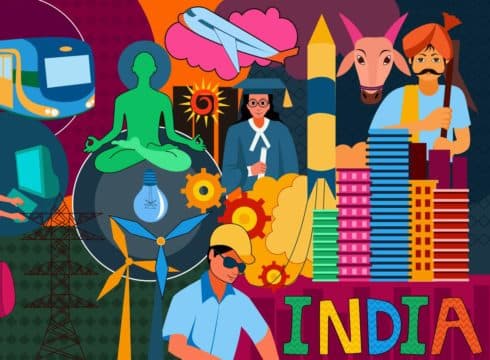Earlier Indian companies went global through acquiring international brands like Jaguar and Hamleys
Amazon sells about a billion dollars worth of Indian goods to foreign markets every year
New-age Indian brands like Ola, Zomato and Oyo are boldly going global in their own unique ways.
Inc42 Daily Brief
Stay Ahead With Daily News & Analysis on India’s Tech & Startup Economy
When Walmart bought Flipkart in 2018, the company valued the Flipkart’s brand name at $4.7 Bn — the highest valuation achieved by an Indian internet company. This deal is remarkable as the value of the brand accounted for more than a fourth of the total deal value ($16 Bn). With the growing awareness of Indian tech products and culture, startups in India are now gaining social currency through a focus on brand building.
This is a big shift from the era when Indian companies entered international markets through acquisitions (think Reliance buying Hamleys, Tata buying Jaguar Land Rover). From a time when Indian products were ridiculed to being in demand for their unique qualities, Indian companies are now
At a panel discussion held in Delhi, Kanwaljit Singh, from the venture capital firm Fireside Ventures, said that “The world of consumer brands has changed in the last five years, now it takes half the time to reach a turnover of INR 100 Cr for a newly-minted brand.
Speaking about the newly acquired taste for Indian brands, Singh gave the example of homegrown brand, Vahdam Tea, which has a great fan following in the US and gets regularly picked by popular talk show host Oprah Winfrey in her list of best gifting items.
The Indian Brand-Building Story
“Authenticity, modernity and accessibility, these are the directives which we followed to expand into overseas markets,” said Sarvesh Shashi, the founder of Sarva Yoga, a yoga and wellness startup which is backed by international stars like Jennifer Lopez and Alex Rodriguez.
Amazon Global Services, which facilitates the sale of Indian goods to foreign markets does about a billion dollars in sales a year–a strong indicator for the growing appetite for Indian consumer products in the west.
“We ship to about 33 countries from India, and if you see the people who order from us, it’s not just Indians living abroad. There is a lot of acceptance for Indian food and clothing. And Amazon brings a higher level of trust to foreign buyers,” Tina Chulet, the founder of Jivaana, an ethnic apparel maker said.
Speaking about standing out in the crowded Amazon Marketplace, Rishabh Chopra, the founder of The Ayurveda Experience, said that “If a category is well established or crowded on Amazon, we try not to enter that market. For example Ayurvedic skincare will be crowded on Amazon in India, but if it is not in the US we will enter the market and differentiate the product in a manner that people don’t keep looking on Amazon.”
Marketing professor at Kellogg Sidney J Levy famously once said that countries go through “life cycles” the same way products do. From basic agricultural products to becoming a manufacturer of products according to the specifications of international brands to when a country itself becomes a mark of distinction, of quality and class in a certain product.
Whether its yoga or Ayurveda or artisan-made products companies need to have something that is inspiring to the rest of the world, and that is a common thread with homegrown brands that are doing well overseas, Kanwal Singh said, “They tell the Indian story,” he added.
So be it Royal Enfield or Bira91, or tech companies like Zomato, OYO and Ola, new age Indian brands are boldly going global. And this time they are doing it on their own terms and in their own unique ways.
{{#name}}{{name}}{{/name}}{{^name}}-{{/name}}
{{#description}}{{description}}...{{/description}}{{^description}}-{{/description}}
Note: We at Inc42 take our ethics very seriously. More information about it can be found here.


